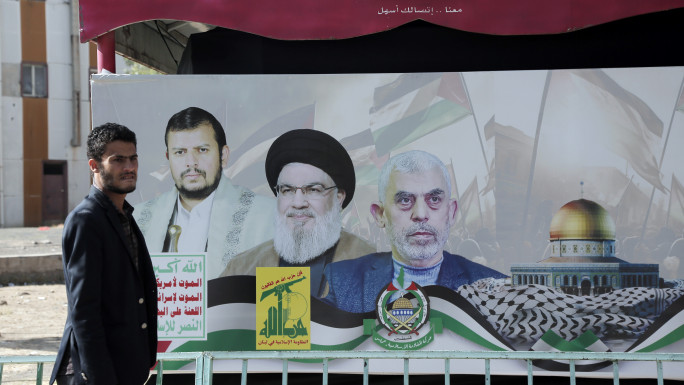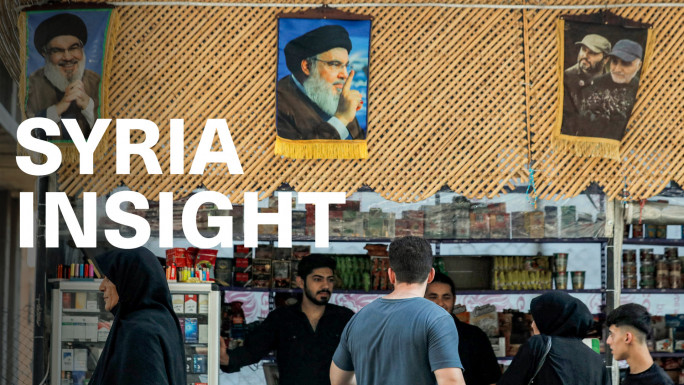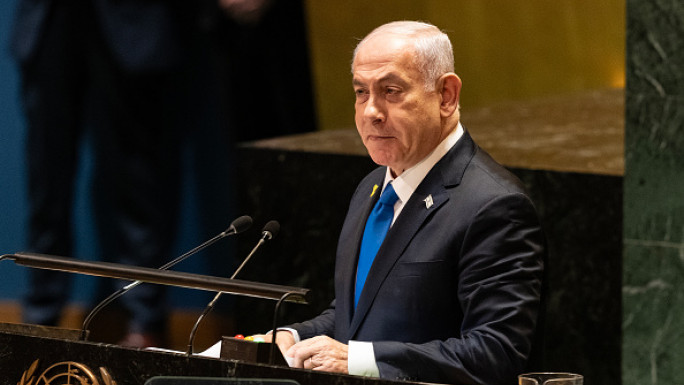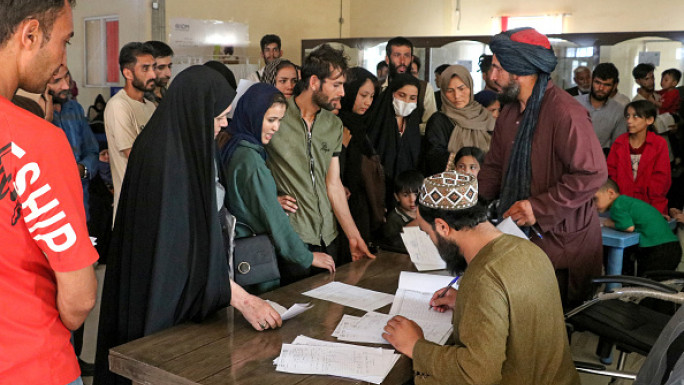
Why are some US educational institutions choosing to take neutral stances on Israel's war on Gaza? We asked

Syracuse University, Harvard University, and Northwestern University are among a growing number of US educational institutions that have chosen not to take clear stances on global events, including Israel’s war on Gaza.
The stance these universities have adopted is commonly referred to as institutional neutrality.
This concept is not new; it originates from a report issued by a committee at the University of Chicago in 1967, chaired by Harry Kalven Jr.
Created during a time when students were urging the university to oppose apartheid in South Africa and the Vietnam War, the report recommends that the best course of action for educational institutions — in the interest of academic freedom — was for their administrations to remain neutral on political, social, and international issues.
Simply put, institutional neutrality calls for universities, as institutions, to show more restraint in issuing statements — or not to issue them at all.
With the aforementioned universities adopting institutional neutrality in response to Israel’s war on Gaza, this stance has created more challenges than solutions, especially for students on campus.
Currently, many students are concerned that by not issuing clear statements and adopting institutional neutrality, expressing pro-Palestine or pro-Israel views in classes, lectures, or public forums could lead to negative consequences for the institution.
Pro-Palestine students feel these consequences more strongly, especially with universities now adopting new policies that administrators claim are necessary to address antisemitic activities and speech targeting Jewish students because of the war.
So far, critics have argued that these new policies could pave the way for sanctions against pro-Palestine speech and activities by grouping students and faculty who support pro-Palestine causes with those who exploit the conflict to promote antisemitic rhetoric.
In light of these challenges, The New Arab examined why some universities choose to remain neutral during global events, particularly regarding Israel’s war on Gaza.
The New Arab also explored some institutions that have taken an alternative approach to institutional neutrality: institutional restraint.
The call for institutional neutrality
Anton Ford, an Associate Professor at the University of Chicago’s Department of Philosophy, explained why universities adopt neutrality regarding major world events.
He begins by referencing an op-ed he wrote in which he stated, “Neutrality has been most useful to university presidents and those at whose pleasure they serve: chancellors, regents, boards of trustees, donors, and state politicians.”
Anton added that neutrality is often used to avoid social criticism, allowing college presidents to silence public debate while keeping an image of moral superiority.
He then admitted to The New Arab that he would not mind if the practice of institutional neutrality ended, expressing that he does not appreciate being spoken for.
Anton supports universities making statements during significant world events, saying, “I think they have every right to make a statement. That would be fine. The same goes for students. I have no objection to that, and I think it's very easy to separate a democratically elected body of faculty from their employer and the institution they work for.”
The Foundation for Individual Rights and Expression (FIRE) also shared their views.
Since its founding in 1999, FIRE has supported the Kalven Report and the idea of institutional neutrality in academia.
Ryan Ansloan, a Senior Program Officer at FIRE, explained to The New Arab: “A lot of times when universities issue statements on events, they are trying to voice support — either in a statement or emotional support — for some group.”
Explaining why issuing statements has consequences, he added: “When they do that, it can put a thumb on the scale. Providing support for one group leaves another group feeling isolated and alienated. That can make people who have a different viewpoint or who interpret something differently feel not only that they don’t have the support of the university but also that they lack the latitude or position to make their own voice heard.”
For Ryan, a policy of institutional neutrality is one that is more likely to encourage dialogue among members of the university community rather than having the university administration’s own stance(s) take centre stage in times of discord.
That said, Ryan acknowledges that this approach is not a one-size-fits-all approach, meaning every campus and community must determine what such a policy would look like or entail if they were to adopt it.
Institutional restraint as an alternative?
An alternative to adopting institutional neutrality is institutional restraint.
Unlike neutrality, which avoids taking sides, institutional restraint allows universities to express their values occasionally while being careful about when they do so.
As Joseph Howley, a member of the Columbia University Senate’s Committee on Faculty Affairs, puts it: Neutrality suggests that the institution lacks values, while restraint means the institution is careful about taking public positions.
Clark University, a private research university in Worcester, Massachusetts, is one example of an institution that has adopted institutional restraint in its response to world affairs.
Clark President David Fithian explained the rationale in his announcement of the new policy to the Clark community, which came from a faculty committee report on potentially adopting institutional neutrality: “What the committee did not recommend is that we frame our new policy as ‘institutional neutrality.’ The committee felt strongly that a ‘neutral’ stance is inconsistent with the fact that we are an institution rooted in and guided by values, making it impossible to be neutral.
“Instead, the committee recommends we label our new policy as ‘institutional restraint.’ That is, we acknowledge that the University, through its leaders, may have corporate views about external events, informed by institutional values, but that we will restrain ourselves from disclosing such views to ensure we foster an environment of unfettered discourse.”
PEN America, an organisation that advocates for free speech, also supports institutional restraint over neutrality.
Kristen Shahverdian, PEN America’s Program Director of Campus Free Speech, spoke about the challenges of issuing statements in response to world events and why institutional restraint is preferred.
She tells The New Arab: “Where do you make statements? Where don't you? You may have many people across your campus — a very diverse campus — with individuals who have a wide range of opinions and beliefs, all of whom want to feel that they have been seen and heard by their leadership. Some universities, over the past few years, really the past decade, have leaned into making statements.”
For Kristen, these statements and the expectations tied to them are a double-edged sword.
“People are not satisfied,” she elaborates. “It’s either not enough, or one group has been talked about more than another group, so it is really a challenge for leadership. This needs to be clarified for their communities as well so that they can start to set that expectation.”
Kristen concludes by stating that the idea behind institutional restraint, citing Princeton University as an example, represents a compromise that does not completely close the door to making statements but leaves it slightly open.
Based on these views, The New Arab turned to recent discourse on the best way to address world events, keeping the war in Gaza in mind.
Peter Wood, in his opinion piece The Illusion of Institutional Neutrality: A Mercifully Short Refresher, says: “What these colleges and universities need to do is find the correct principles and stand on them. That’s not a formula; it’s a call for the hard work of determining when the university should take a position — regardless of the cost — and when it should just as clearly say it welcomes open debate — irrespective of the costs.”
Dalia Abdelwahab is a journalist and broadcaster whose work focuses on national news, foreign affairs and popular culture








